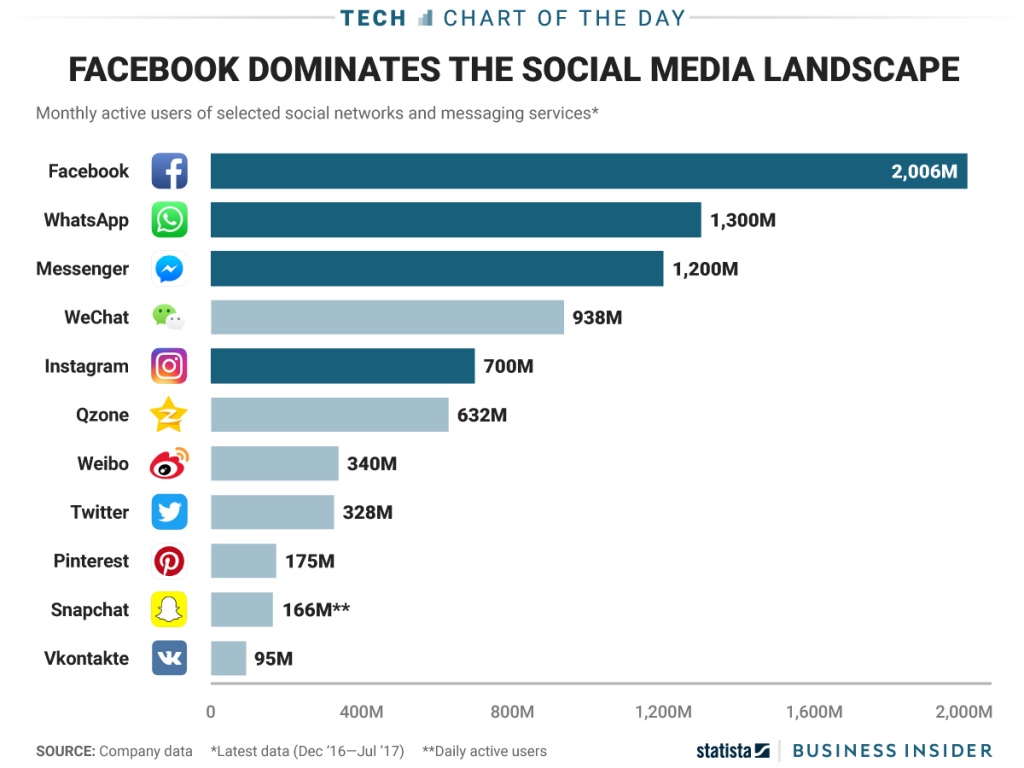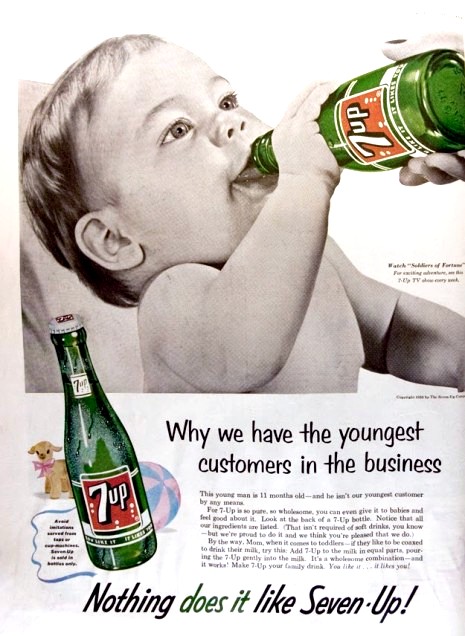More and more travel businesses are adopting digital channels for effective delivery of their marketing messages.
In the world of digital marketing, it’s often challenging to separate effective and ineffective tactics.
What may work for one brand may prove completely inefficient for another.
Although there are some marketing mistakes which are common in the travel industry, in this article, we will discuss 7 digital marketing mistakes which travel businesses need to avoid.
1) Targeting the Wrong Audience
Targeting the right audience is the foundation of any successful marketing campaign.
Many campaigns fail because marketers are targeting the wrong audience or are unaware of exactly who their target audience is.
There’s a few obvious examples out there:
In travel, you not only have to reach the right audience, but you also must deliver the right message at the right time.
Travel is a seasonal business, where demand fluctuates and a destination or tour package may be popular only for few months in a year.
So, as a travel business, you need to consider all the factors which will affect the purchasing decision and use this to serve ads at the appropriate time.
2) Overlooking Social Media
Social Media has transformed travel to such an extent that travel is almost unrecognisable if we compare the landscape to a decade ago.
Many travel businesses still overlook the importance of Social Media and fail to take advantage of this vastly powerful marketing medium.
Social Media offers a platform to reach a wide range of audience which may be interested in your product.

Social is a marketing channel where small business can compete easily with their large counterparts as social media tactics are easy to implement and are effective for all types of businesses irrespective of their size.
Organic reach of social media ads is declining as all major social media networks, including Facebook, Twitter, and Instagram have changed their algorithms to place more importance on content from friends and families in the news-feeds of their users.
There are still ways to benefit from social media as the viral or network effect, which made social media platforms ideal for marketers in the first place is still relevant to marketers in 2019.
Research suggests that large travel booking sites are used by just a fifth of travellers. This means that small travel businesses can gain tremendously by adopting a customer-centric social media strategy.
Social media is an excellent way to resolve customer queries, as customers spend 20-40% money on their holiday when companies engage and respond to messages over social media.
3) Personalise
Personalisation has been the buzzword in marketing circles for years.
The travel industry has slowly realised the value of delivering a personalised experience to their potential customers across all devices and marketing channels.
According to a survey conducted by Amadeus group, a leading provider of technology to travel and hospitality businesses, 86% of travellers like or value personalised offers.
Travellers want all travel options to be centralised, personalised and delivered across all their devices.
That’s not too much to ask, is it?
Another survey by HubSpot reveals that personalised call-to-actions performs +202% better than a basic call to actions.
Marketing experts recommend to use bespoke landing pages, bespoke call-to-actions and bespoke content to deliver a personalised recommendation.
A travel business can gain a significant advantage over their customers by adopting an individualised approach to digital marketing.
There’s a real opportunity to be an industry leader, without breaking the bank!
Personalisation is much more than using the first name of a person and is misunderstood by even veteran marketers.
To effectively re-market you’ll need to improve your database.
You need a person’s name, gender, age, along with information about their last visited cities, interests, hobbies, places they want to visit, and the type of travel experience they crave to make a truly personalised travel recommendation.
Once you can understand the motive for travel of potential customers it becomes quite easy to create a personalised digital marketing strategy.
Your business will do much better if you understand your customer’s travel goals and then use this information to craft a personalised sales experience for them.
Tapping into their emotions becomes key to an effective sale!
4) Selling Services Instead of Experiences
Most travel businesses are still selling services or destinations, whereas travellers are increasingly interested in ‘authentic’ experiences.
A recent survey conducted by Travel technology provider Likewhere, found that experiences are key to engaging potential customers.
The modern traveller is more interested in having a memorable experience than a tour package or a destination.
The survey mentioned above discovered that 63% of travellers consider local experiences very important, while only 3% said that local experiences are not important at all.
Most big travel brands have adapted to the changing scenario and are moving towards selling unique local experiences.
Millennials are particularly interested in experiences, and this is the fastest-growing target audience. Millennials also travel more than any previous generation.
A staggering 86% of millennials travel specifically to experience a new culture.
They are also more likely to make their travel plans based on the fact that whether they can share travel experience on their social media profiles.
You need to start selling experiences and drop the dated approach of selling tour packages.
Focus on the why!
5) Inability to Measure Results
Many travel businesses lack the skills, tool, and knowledge to measure the results of marketing campaigns.
This often results in wasteful spending and may defeat the whole purpose of investing in marketing.
The key to measuring a campaign is to have a specific objective which you want to achieve.
Once you have a defined set of marketing goals, you can identify which metrics you need to track beforehand.
KPI metrics will differ depending on the nature of your marketing campaign; it’s objectives and the marketing channels used.
However, it is important to have a feedback loop and regularly review performance:
Measuring the effectiveness of social media marketing campaigns is especially hard as there is little correlation between likes, shares, tweets, and revenue of a travel website.
Not all people who like your Facebook Page may end up buying from you.
So, always define clear goals before launching a marketing campaign and know which actions constitute an engaged visitor.
Tracking this well help you to understand the effectiveness of your marketing campaign!
6) Lack of Engaging Content
Content is the backbone of every marketing campaign. This is especially true in the case of travel businesses.
Many travel businesses have dull and un-engaging content. This results in lacklustre performance and is often a big turnoff for a vast number of customers.
Travellers are looking for information about the type of experience they will get, and by utilising engaging content, you can convert a website visitor into a customer.
You must also be mindful of the fact that the human brain more easily processes visual content, and it’s a good idea to use images, and video in your overall marketing mix.
More and more people prefer video-based content over text as it’s easier to consume, removing the need to read through extensive copy.
There are several examples of brands and destinations using video to capture the attention of a traveller who is searching for travel inspiration.
You can have a look at this video made by Iceland’s Official Tourism Promotion site which starts with a breath-taking image and does a beautiful job of engaging viewers using imagery, social proof, and copy.
Many travel brands have also utilised the power of user-generated content, which has become an integral part of any well-designed travel marketing strategy over the last few years. User-generated content is trusted by consumers as it’s considered more authentic.
User-generated content can also be considered as one of the most potent forms of ‘word of mouth’ marketing.
Nothing is as powerful as a happy customer sharing their own positive experience with their friends and family.
You can also use user-generated content more creatively by combining it with other marketing channels.
Norwegian Cruise Line’s popular hashtag #cruisenorwegian is an excellent example of creativity combined with user-generated content.
This hit hashtag has been shared more than 44,000 times on Instagram by customers and fans of Norwegian Cruise Line.
Users share their own experience along with images and videos of their travels with their followers leading to free publicity for Norwegian Cruise Line.
All Norwegian had to do was provide its customers with excellent customer service along with refreshing travel experience, and without spending a penny, thousands have shared their own experience using this hashtag.
7) Insufficient Budget
Lack of sufficient budget is perhaps the most common mistake committed by small travel businesses.
Large travel brands have dedicated marketing budgets along with separate marketing departments which plan, execute, and monitor digital marketing campaigns.
While smaller travel brands are often on a shoestring and lack the financial resources required for running a serious marketing campaign, often they underestimate the budget needed for a multi-channel digital marketing campaign.
This leads to a situation where the marketing campaign must be stopped before achieving it’s objective due to a lack of funds.
You must carefully study the budget required for your marketing campaign and plan accordingly.
It’s a good idea to run a smaller campaign with targeted objectives if you have a low budget.






